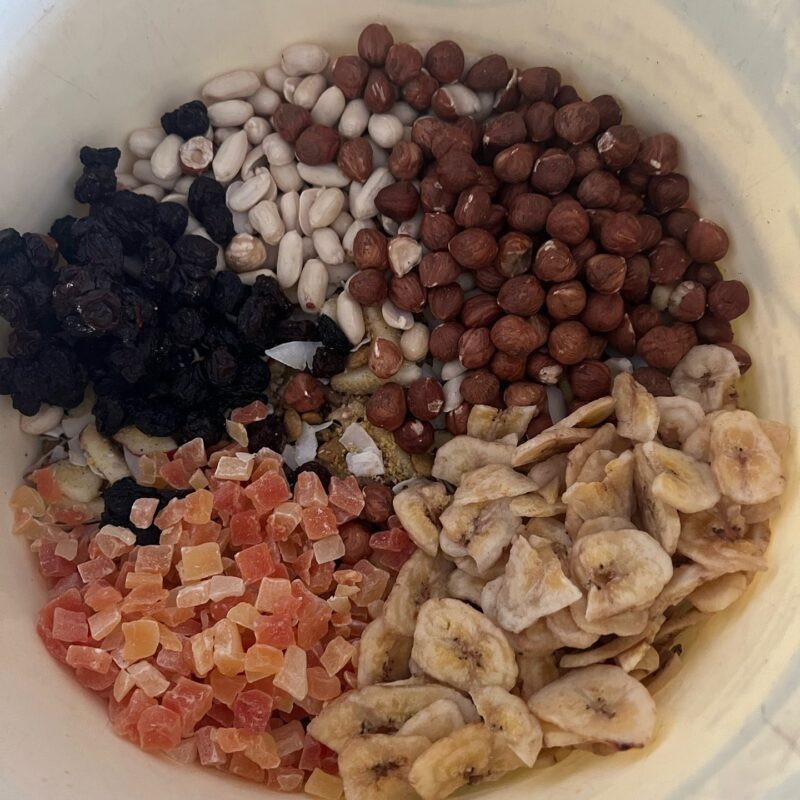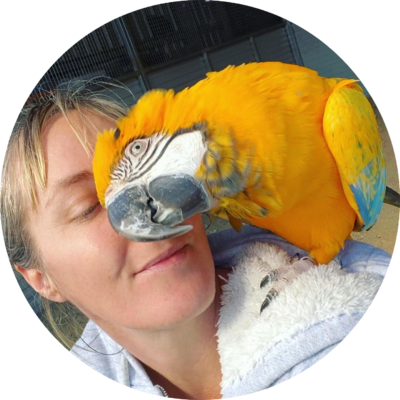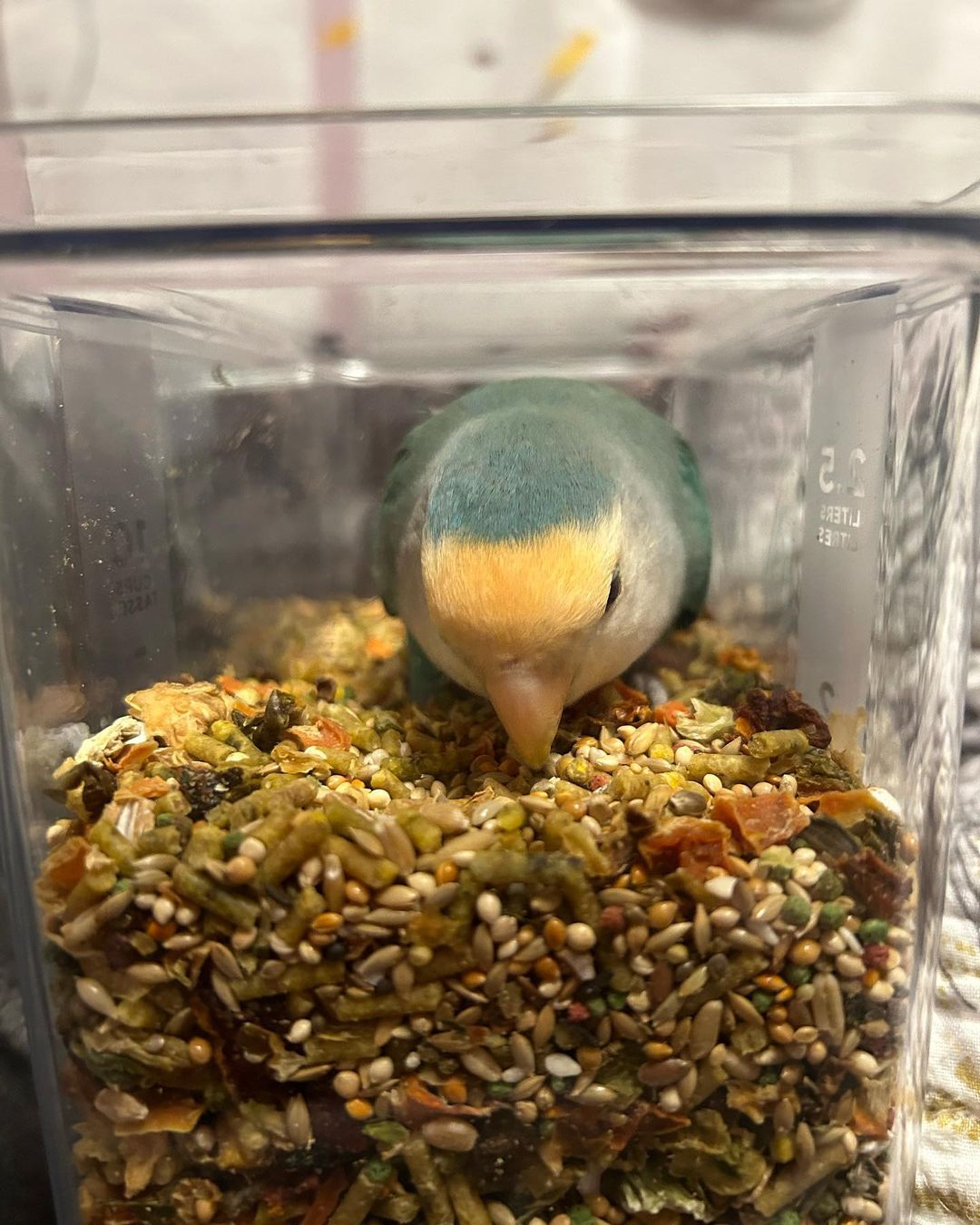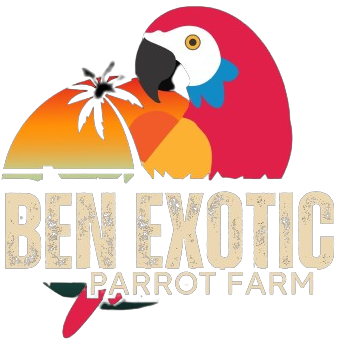HOW TO FEED YOUR PARROT.
A COMPLETE GUIDE.

 Feeding your parrot a balanced and nutritious diet is essential to ensure its health and well – being. Different specise of parrots have varying dietary requirements, so it’s crucial to research the spcific needs of your parrot’s species. However, here’s a general guideline on what to feed your parrot:
Feeding your parrot a balanced and nutritious diet is essential to ensure its health and well – being. Different specise of parrots have varying dietary requirements, so it’s crucial to research the spcific needs of your parrot’s species. However, here’s a general guideline on what to feed your parrot:
Proper nutrition is essential for the health, happiness, and longevity of your parrot. At Ben Exotic Parrot Farm, we ensure that every bird starts life with a balanced and nutritious diet. To help you provide the best care for your feathered friend, we’ve created this comprehensive guide on how to feed your parrot.
Providing a balanced and nutritious diet is one of the most important aspects of caring for your parrot. By following this feeding guide and incorporating a variety of healthy foods, you can ensure that your feathered friend lives a long and vibrant life.
1. Understanding Parrot Nutrition Needs
Parrots have diverse dietary needs depending on their species, age, and activity level. A well-balanced parrot diet typically includes a combination of:
Pellets: High-quality pellets should make up about 60-70% of your parrot’s diet. They provide essential nutrients in a balanced form.
Fresh Fruits and Vegetables: Include a variety of colorful, fresh produce such as carrots, broccoli, apples, and berries. Avoid toxic foods like avocados and onions.
Nuts and Seeds: These can be offered in moderation as treats or occasional supplements.
Whole Grains: Brown rice, quinoa, and whole-grain pasta are excellent sources of carbohydrates.
To learn more about species-specific diets, visit our parrot nutrition guide.
2. Choosing the Right Pellets
Pellets are a crucial part of your parrot’s diet because they are formulated to provide balanced nutrition. Look for brands that are free of artificial colors, flavors, and preservatives.
For recommendations on the best pellets for different parrot species, check out our pellet selection guide.
3. Fresh Fruits and Vegetables: A Must-Have
Fruits and vegetables provide essential vitamins, minerals, and antioxidants. Aim for a colorful variety to ensure that your parrot gets a wide range of nutrients. Some safe and nutritious options include:
Vegetables: Spinach, carrots, green beans, bell peppers
Fruits: Apples (without seeds), bananas, blueberries, mangoes
Ensure that fresh produce is thoroughly washed and free of pesticides. For a complete list of safe fruits and vegetables, visit our parrot-safe produce guide.
4. Foods to Avoid
Certain foods can be harmful or even fatal to parrots. Never feed your parrot the following:
Avocados
Chocolate
Caffeine
Alcohol
Onions and garlic
Salty or sugary snacks
To learn more about parrot safety and toxic foods, read our parrot food safety guide.
5. Proper Feeding Schedule
Establishing a consistent feeding schedule helps maintain your parrot’s health and behavior. Here’s a simple routine:
Morning: Fresh fruits, vegetables, and pellets
Afternoon: Light snacks like nuts or whole grains
Evening: Pellets and any remaining fresh produce
Make sure to remove uneaten fresh food after a couple of hours to prevent spoilage.
6. Providing Fresh Water
Always ensure that your parrot has access to clean, fresh water. Change the water daily and clean the water dish thoroughly to prevent bacterial growth.
7. Treats in Moderation
While treats are great for training and bonding, they should be given in moderation. Nuts and seeds can be used as occasional rewards but shouldn’t make up a large part of your parrot’s diet.
Looking for treat ideas? Visit our parrot treat suggestions guide.
8. Monitoring Your Parrot’s Diet
Pay close attention to your parrot’s eating habits and overall health. Sudden changes in appetite, weight, or behavior may indicate a health issue. Regular visits to an avian veterinarian are essential to ensure your parrot5. Proper Feeding Schedule
Establishing a consistent feeding schedule helps maintain your parrot’s health and behavior. Here’s a simple routine:
Morning: Fresh fruits, vegetables, and pellets
Afternoon: Light snacks like nuts or whole grains
Evening: Pellets and any remaining fresh produce
Make sure to remove uneaten fresh food after a couple of hours to prevent spoilage.
6. Providing Fresh Water
Always ensure that your parrot has access to clean, fresh water. Change the water daily and clean the water dish thoroughly to prevent bacterial growth.
7. Treats in Moderation
While treats are great for training and bonding, they should be given in moderation. Nuts and seeds can be used as occasional rewards but shouldn’t make up a large part of your parrot’s diet.
Looking for treat ideas? Visit our parrot treat suggestions guide.
8. Monitoring Your Parrot’s Diet
Pay close attention to your parrot’s eating habits and overall health. Sudden changes in appetite, weight, or behavior may indi’s well-being.

a) Fresh water : provide clean water in a shallow bowl, change the water daily to prevent contamination.
b) Pellets: High-quality commercial pellets designed for parrots are a good base for their diet. They contain essential nutrients and vitamins. Look for pellets without artificial colors and preservatives. The pellets should make up about 60-70% of their diet.
c) Fresh Fruit: Offer a variety of fresh fruits like apples, bananas, grapes, oranges, and berries. These provide vitamis, minerals and antioxidants. Remove seeds from fruits like apples and grapes as they can be toxic.
d) Fresh Vegetables: Include a mix of fresh vegetables such as carrots, broccoli, spinach, kale and bell peppers. These are rich in vitamins, fiber and minerals. Ensure they are washed t
oroughly and if necessary, chopped into manageable pieces.
e) Sprouted Seeds: Sprouted seeds are highly nutritious and easier to digest than dry seeds. you can sprout seeds like sun flower, millet and quinoa at home or buy them from a pet store.
f) Nuts : Offer nuts like almonds walnuts and Brazil nuts in moderation. They are high in fat so only provide small amounts as occasional treats.
g) Herbs and Greens: Fresh herbs like parsley, cilantro and dill can be a nice addition to their diet. Some parrots also enjoy leafy greens
h) Protein: provide sources of protein like cooked chicken or lean meats, eggs and low-fat dairy products like yogurt and cheese in small amounts. Avoid giving them processed or fatty meants.
i) Grains and Legumes : Parrots can eat cooked grains like rice and pasta as well as cooked legumes like lentils and beans. Make sure they are plain and not seasoned with salt or spices.
j) Mineral Blocks and Cuttlebone: Parrots need calcium for strong bones. Mineral blocks and cuttlebones provide a source of calcium and keep their beaks healthy.
k) Supplements : In most cases, a balanced diet should provide all the necessary nutrients. However, consult with an avian veterinarian before adding any supplements to your parrot’s diet. Excessive supplementation can be harmful.
l) Avoid Toxic Foods: Some foods are toxic to parrots and should never be offered. These include chocolate, caffeine, alcohol, avocado, rhubarb, and anything with high salt content.
M) Variety: Offer a wide variety of foods to ensure your parrot receives a diverse range of nutrients. This also helps prevent boredom.
n) Portion Control: Monitor your parrot’s food in take to prevent overeating and obesity. Adjust portion sizes based on its activity level and age.
o) Cleanliness : Ensure food and water dishes are kept clean to prevent bacterial growth and contamination.
Remember that individual parrots may have different preferences, so it’s essential to observe your bird’s habits and adjust its diet accordingly. Consult with an avian veterinarian for specific dietary recommendation tailored to your parrot’s needs and always prioritize its health and well-being.
